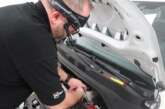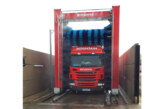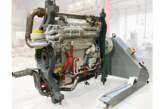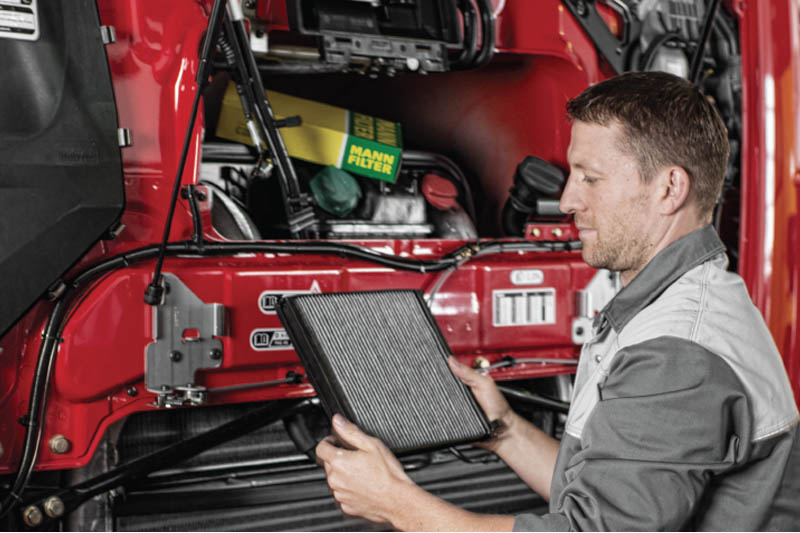
As the days get shorter and visibility gets worse in autumn and winter, a well-functioning cabin filter makes an important contribution to road safety. Mann-Filter explores what you can do to ensure you have the full offering.
During the warm spring and summer months, the air is heavily contaminated with pollen. In addition to sooty particles, dust, and tyre abrasion, the pollen contributes towards clogging the vehicle’s cabin filter. When preparing their vehicles for the cold and dark season, many fleet managers think of winter tyres, antifreeze, or de-icing spray.
“A new cabin filter is equally important. It has to perform at the highest level during the autumn and winter to ensure good visibility and a healthy atmosphere in the passenger compartment,” comments Emrullah Atilgan, Product Manager, Cabin Filter at Mann-Filter. Workshops and distributors should inform their customers of this fact, advises the expert.
To maintain optimum performance, the cabin filter should be replaced every 15,000 kilometres or once a year at the latest. In reality, however, drivers in the UK only change their cabin filters on average about every six years, according to the findings of the Mann-Filter experts.
Efficient investment
Measurements have revealed that, without a cabin filter, the vehicle occupants are exposed to a significantly higher concentration of pollutants than roadside pedestrians. Like a vacuum cleaner, the ventilation system draws in the exterior air, which is contaminated with particles and harmful gases.
Up to 540,000 litres per hour of air enter the vehicle interior through the filter, the air conditioning, heating system and blowers. Mann-Filter cabin filters ensure clean air in the vehicle interior. They clean the aspirated exterior air and remove nearly 100% of harmful particles. Over time, however, the core of the filter – the filter medium – gradually clogs up, which can result in a reduction in blower capacity by around 50- 70%. In order to ensure fully effective air cleaning and a good air flow, the cabin filter should be replaced at timely and regular intervals. A new filter is, therefore, a good investment in the health of all drivers.
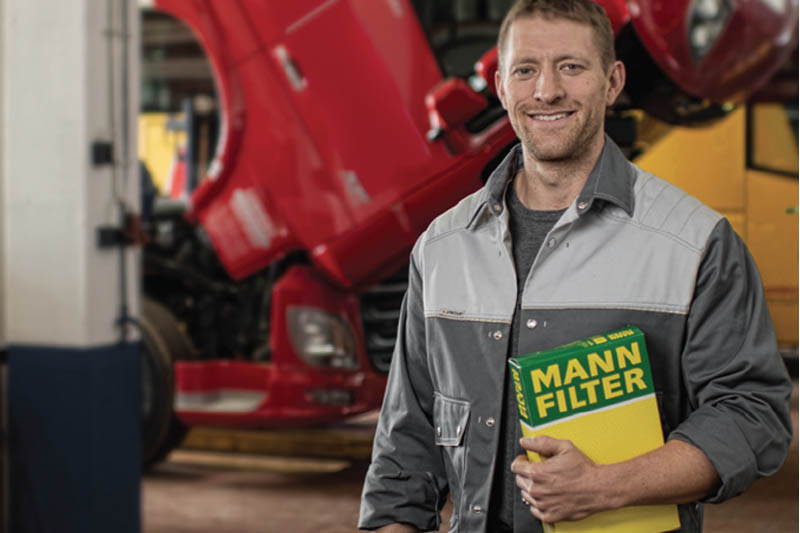
Clear view on dark days
Cabin filters also protect the air conditioning system from contamination and increase its operating life as no deposits form in the fine structures of the evaporator when the filter is replaced as specified. At the same time, full cooling and heating output of the air conditioning system is maintained.
In the winter, this ensures, for example, that the vehicle interior warms up more rapidly – full blower capacity is also essential here. If, on the other hand, the air flow decreases due to a clogged filter, misted-up windows and a dangerous glare/greasy film can result. Particularly when faced with oncoming traffic in darkness, the driver’s view is significantly impaired.
“A clogged filter and a poor air flow can have an impact on the road safety of the vehicle and the risk of accident is considerably increased,” warns Arnulf Thiemel, a specialist for automotive engineering at the German automobile association, ADAC.
Fast and simple upgrade
Mann-Filter supplies cabin filters in OE quality for safety, comfort, and a healthy climate during driving. Installation instructions for simple and fast replacement at the workshops are provided with each filter. It is also easy to upgrade to an activated carbon filter for virtually all filters.
Particle filters retain solid particles such as dust, pollen, and soot, whilst combi-filters – thanks to an additional activated carbon layer – almost completely eliminate harmful gases such as ozone and benzene, as well as unpleasant odours. When changing the filter, the mechanic can generally without any additional effort replace the particle filter by the more effective combi-filter.

